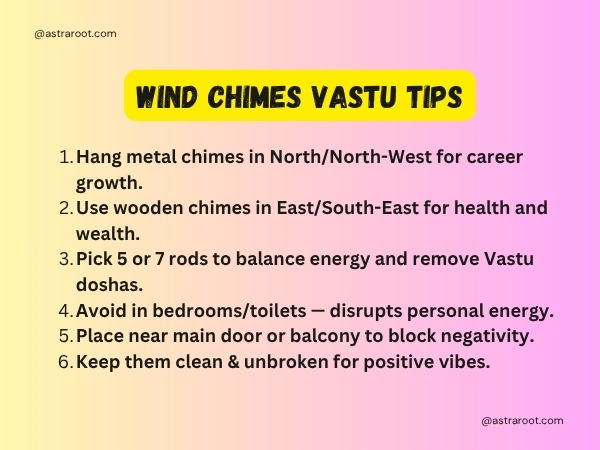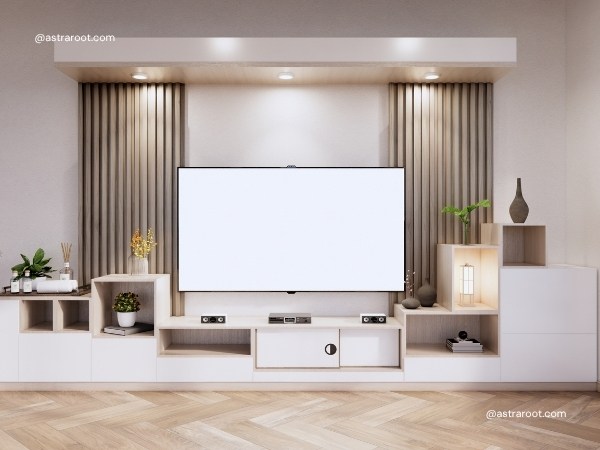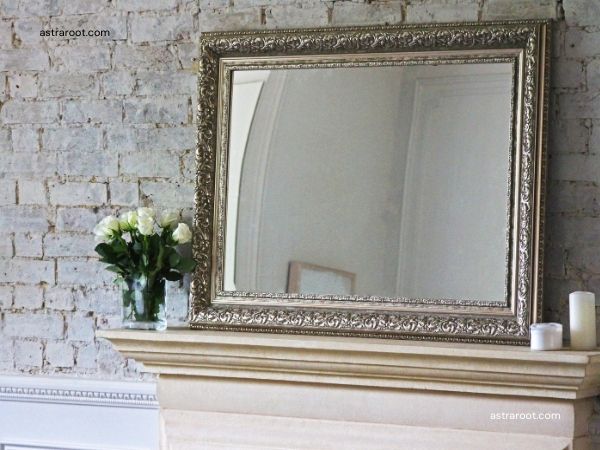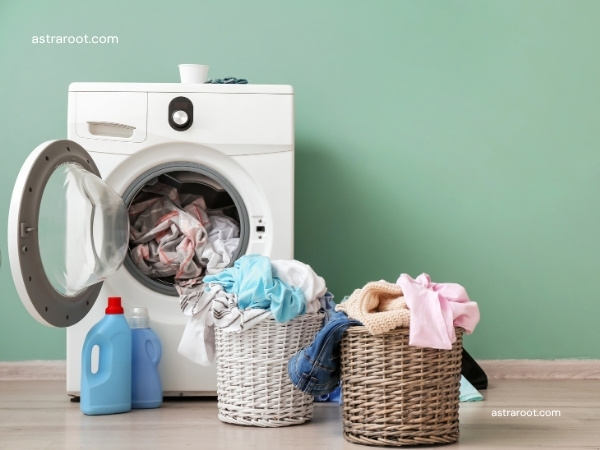Wind Chimes Vastu – Best Direction, Benefits and Tips
Wind chimes is a popular concept in Vastu Shastra and Feng Shui that focuses on attracting positive vibrations, enhancing flow of prana (life energy), and reducing negative influences in the home.
When placed in the correct direction and made of the right material, wind chimes can work as powerful Vastu remedies for imbalance, stress, and stagnation in the home’s energy flow.
Let’s explore the ideal direction, number of rods, types of materials, placements for different rooms, and common mistakes to avoid when using wind chimes vastu.
Note: This post contains affiliate links. If you make a purchase through these links, I may earn a small commission at no extra cost to you. This helps support the blog and allows me to continue creating helpful content.
Benefits of Wind Chimes as per Vastu Shastra🌟
Wind chimes are not just aesthetic home decor — they are considered a powerful Vastu remedy to attract luck, abundance, and harmony into your home. When placed correctly, they help align your surroundings with natural energies.
- ✅ Attracts Positive Energy: The gentle, soothing sound of wind chimes helps break negative or stagnant energy patterns and brings in positive vibrations to your home environment.
- ✅ Brings Good Luck & Fortune: Wind chimes, especially when placed in the North-West or South-East, are believed to enhance luck, wealth flow, and new opportunities, making them ideal for career and business success.
- ✅ Improves Health and Relationships: Placing wooden chimes in the East or crystal chimes in the North-East can create a peaceful aura, promoting emotional healing, better relationships, and family harmony.
- ✅ Protects Against Negativity: Wind chimes help ward off negative energy, evil eyes, and unseen forces by creating a vibrational shield around the space — especially near the main entrance or balcony.
- ✅ Boosts Mental Peace & Spiritual Energy: Crystal and metal wind chimes placed in pooja rooms or meditation corners enhance clarity, calmness, and spiritual connection.
- ✅ Enhances Wealth and Abundance: A 5 or 6-rod metal wind chime in the South-East zone acts as a wealth Vastu cure, attracting financial abundance and removing blockages in prosperity.
Best Direction for Wind Chimes as per Vastu🧭
The direction of placement is crucial in Vastu. Different materials work best in different zones.
✅ 1. North-West (Vayavya) – Metal Wind Chimes
- Element: Air (Vayu)
- Recommended Material: Metal
- Best For: Travel, support from mentors, mental peace.
- Why: North-West governs relationships, communication, and support systems. A metal wind chime here activates helpful energies.
✅ 2. North – Career & Opportunities
- Element: Water (Jal)
- Recommended Material: Metal or crystal
- Best For: Career growth, financial opportunities.
- Why: North is the direction of Kuber (Lord of Wealth) and Mercury (Budh) – enhances clarity and networking.
✅ 3. East – Health & Family Harmony
- Element: Wood
- Recommended Material: Wooden wind chimes.
- Best For: Family bonding, good health, growth.
- Why: East is ruled by the Sun and boosts vitality, peace, and healing.
✅ 4. South-East – Wealth Activation
- Element: Fire
- Recommended Material: Metal or bamboo
- Best For: Finances, wealth flow
- Why: Enhances the Agni element needed for wealth activation. A 5-rod wind chime is beneficial here.
Shape of Wind Chimes & Meaning
- Round Tube Wind Chimes: These are the most effective and widely recommended. The hollow tubes create soothing sounds that help attract positive energy and circulate chi smoothly throughout the space.
- Flat Rod Chimes: These produce a sharper, more cutting sound and are generally used to disperse heavy or stagnant energy in a specific area. Best placed where energy feels blocked or heavy.
- Bell-Shaped Chimes: Symbolize divine communication and spiritual awakening. Ideal for placement near meditation zones, pooja rooms, or in the North-East zone to enhance spiritual vibrations.
- Spiral or Decorative Shapes: These are more artistic than functional. While they look appealing, they may not always create balanced sound frequencies and should be used only if their material and direction are Vastu-compliant.
- Multi-Layered or Tiered Chimes: These work well in open areas like balconies or verandas, as they activate multiple energy levels. Use them with care to avoid overstimulation in compact indoor spaces.
Note: In Feng Shui, wind chimes with symbols like dragons, bells, coins, or om symbols may be used to further enhance directional impact — this differs from traditional Vastu, which avoids religious icons in every decor element.

Number of Rods in Wind Chimes & Their Significance 🔢
According to Vastu and Feng Shui:
- 5 rods: Most balanced – symbolizes five elements (earth, water, fire, air, space)
- 6 rods: Attracts wealth, especially suitable for North-West.
- 7 rods: Improves health and family harmony.
- 8 rods: Brings prosperity and abundance.
- 9 rods: Ideal for spiritual energy and universal blessing.
- Avoid 3 rods: Incomplete energy, can disturb harmony.
Buy the right wind chimes for your home – buy here
🏠 Where to Hang Wind Chimes in the House
Correct placement of wind chimes amplifies their benefits and ensures the right energy flows into your home. Here’s a direction-wise and room-wise guide:
1. Main Door / Entrance
- ✅ Best Direction: North, North-West, or East of the entrance.
- 🔔 Wind Chime Type: 5 or 6-rod metal wind chime with a pleasant sound.
- 🛑 Avoid: Hanging directly above the door frame or in South-West.
- Why: This welcomes positive energy and removes negative vibrations at the entry point.
🌿 2. Balcony or Veranda
- ✅ Best Direction: East or East-South-East corners.
- 🔔 Wind Chime Type: Wooden or bamboo chimes.
- Why: These directions are associated with growth and prosperity, and natural materials amplify it.
🛋️ 3. Living Room
- ✅ Best Direction: North-West corner or East wall.
- 🔔 Wind Chime Type: Metal or crystal chime depending on direction.
- Why: It enhances bonding, harmony, and smooth communication among family members.
🧘 4. Pooja Room or Meditation Space
- ✅ Best Direction: North-East (Ishanya zone).
- 🔔 Wind Chime Type: Crystal or small metal chime.
- Why: North-East is the most spiritually charged zone, and chimes here enhance meditative energy.
🛏️ 5. Bedroom
- 🚫 Avoid placing wind chimes in bedrooms, especially above the bed.
- Why: The continuous sound may disturb restful sleep and overstimulate mental energy.
🧹 6. Utility / Store Room / Toilet Areas
- 🚫 Do not hang wind chimes in these low-energy spaces.
- Why: These areas can absorb positive energy and disturb the balance of vibrations.
Common Vastu Mistakes to Avoid with Wind Chimes❌
- Don’t hang broken or cracked wind chimes – they attract negative energy.
- Avoid wind chimes with harsh or jarring sounds. Choose soft, soothing tones.
- Don’t place wind chimes in the South-West, unless they’re ceramic and used decoratively.
- Avoid placing wind chimes in toilets or store rooms, where energies are low or stagnant.
- Don’t use plastic wind chimes, as they lack natural elemental energy.
- Do not hang a Feng Shui wind chime below the staircase, as it prevents wealth, prosperity, and good luck from entering the space.
Buy the right wind chimes for your home – buy here
🙋♀️ FAQs – Wind Chime Vastu
Q: Which wind chime is best for money?
A: A 5-rod metal wind chime in the South-East direction helps activate financial energy and attract abundance.
Q: Can we hang wind chimes inside the house?
A: Yes, but placement must follow Vastu zones. Best indoors near North-West or East windows.
Q: an wind chimes be placed outside the main door?
A: Absolutely. Just ensure it doesn’t obstruct the entry and the chime sound is pleasant and calming.
Q: Is wind chime sound important in Vastu?
A: Yes. A soft, harmonious sound promotes positivity, while a harsh tone can disturb the aura.
Q: Can we keep multiple wind chimes in the house?
A: Yes, if each is placed correctly as per Vastu principles. Avoid overcrowding or overlapping energy zones.
Q: Do wind chimes remove negative energy?
A: Yes, wind chimes are widely believed to remove negative energy from a space, especially when placed according to Vastu or Feng Shui principles. The soft, rhythmic sound produced by wind chimes breaks stagnant energy patterns and neutralizes negative vibrations.
Q: What is the superstition about wind chimes?
A: Many people believe that wind chimes are more than just decorative items — they carry spiritual significance rooted in ancient traditions. The soft, melodic sound produced by the chimes as they sway in the breeze is thought to dispel negative energy and attract positivity, peace, and abundance.
Across cultures, wind chimes are seen as symbols of good luck, prosperity, and harmony. Their gentle vibrations are believed to align the energy flow (or prana/chi), making your space more balanced and spiritually uplifting.
Q: What is the science behind wind chimes?
A: Scientifically, wind chimes produce vibrational sound waves that interact with the environment. The resonating frequencies help break up stagnant air and create rhythmic patterns that can have a calming effect on the brain, reducing stress and anxiety.
The material, length, and placement of the rods determine the pitch and tone, influencing how soothing or stimulating the sound is.
Q: Is gifting wind chimes good or bad?
A: Gifting wind chimes is generally considered good and auspicious, especially in Vastu and Feng Shui traditions. They symbolize positive energy, good luck, and harmony.
Q: Do wind chimes have a purpose?
A: Yes, wind chimes serve both aesthetic and energetic purposes. They enhance decor while also helping to attract positive energy, ward off negativity, and create a calming ambiance through their soothing sounds.
Conclusion
When used correctly, wind chimes as per Vastu act as simple yet powerful tools to shift the energy in your home.
From improving communication to attracting wealth and peace, their sound activates stagnant zones and balances natural elements. Follow proper directions, materials, and rod counts to fully harness their energy.






